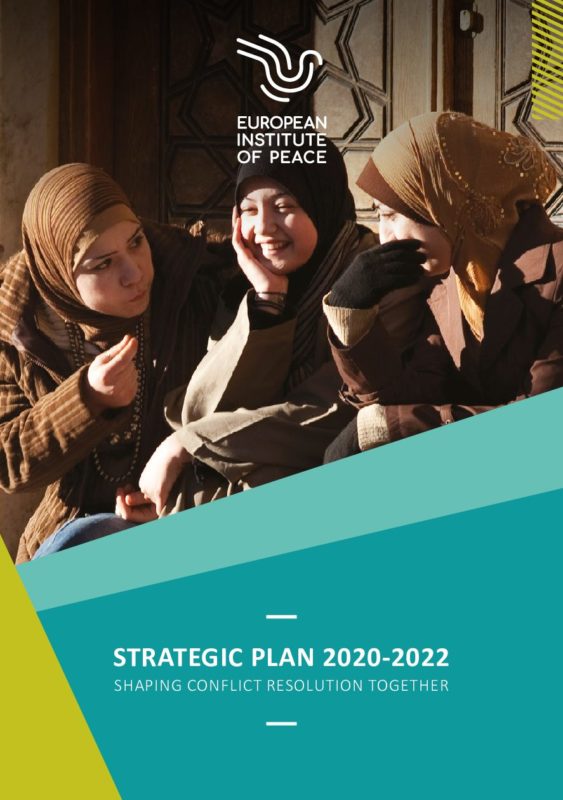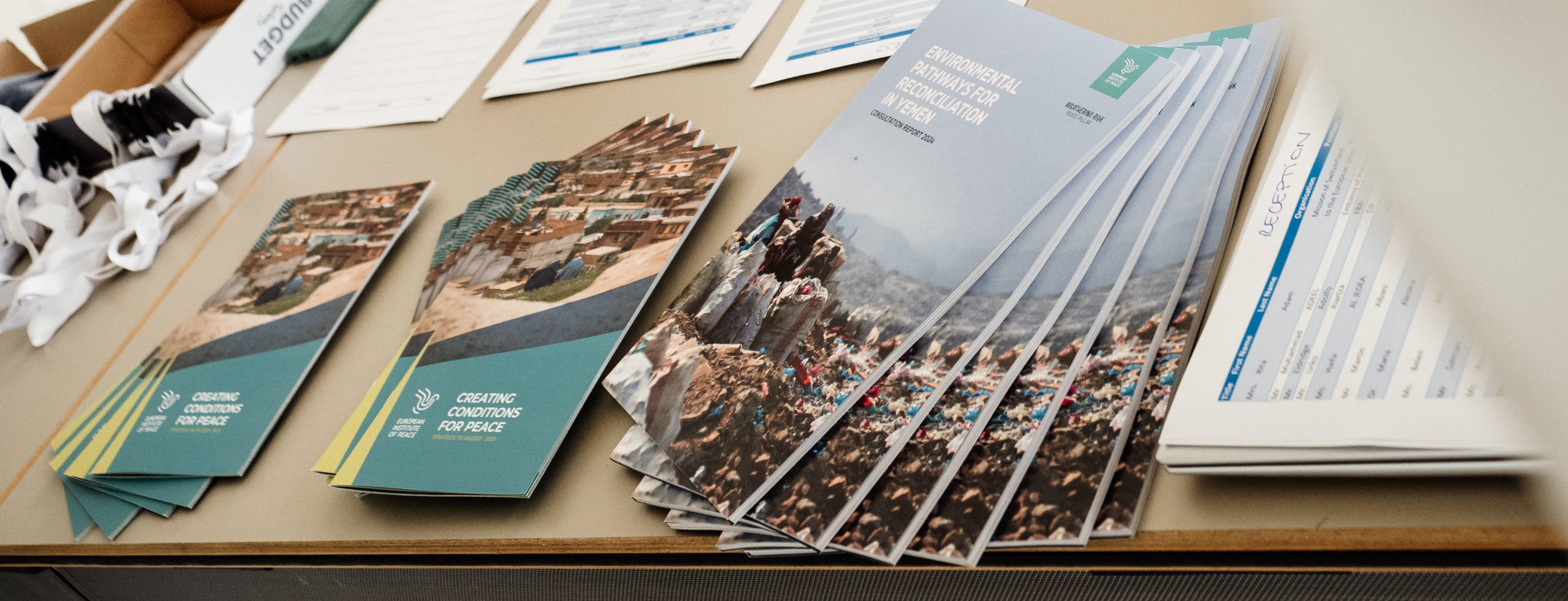Shaping Conflict Resolution Together – Strategic Plan 2020-2022

FOREWORD
Building trust is the cornerstone of successful conflict resolution. Without trust, there can be no pathway to lasting peace.
Our role as the European Institute of Peace is to nurture the right conditions for trust to grow. We do this by working with people across the social and political spectrum to find ground on which to build sustainable agreements.
There are many challenges to writing a strategic plan at a time of great upheaval. Covid-19 has revealed many of the structural factors that contribute to conflict, including: inequality; chronic poverty in an age of mass consumption; discrimination and marginalisation, whether on the basis of ethnicity, skin colour, religion or gender. People affected by violence in and from fragile and conflict-affected states are among the most vulnerable in the world.
During this third decade of the 21st century, we intend to play to our strengths as a European player with a global network, able to initiate dialogue and design processes that bring people together across ideological and political divides. In doing so, we will support the European Union as a standard bearer of multilateralism and human rights rooted in international law, a role that has assumed greater importance as the United States retreats from a global leadership role. This entails the Institute going the extra mile to support inclusive processes, not least by committing ourselves to gender equity in the design, management and implementation of all our activities.
A central issue during the period covered by this plan will be to support conflict-sensitive responses to the social, economic and political impact of Covid-19 upon societies affected by conflict. This foreshadows an even more existential crisis, with ever more tangible impacts, namely, climate change.
We will work to identify and seize any openings that these threats create to engage in dialogue, to reduce violence, and to secure peace agreements, while working with others to ensure that the responses to Covid-19 and climate change address, and do not exacerbate, underlying drivers of conflict.

